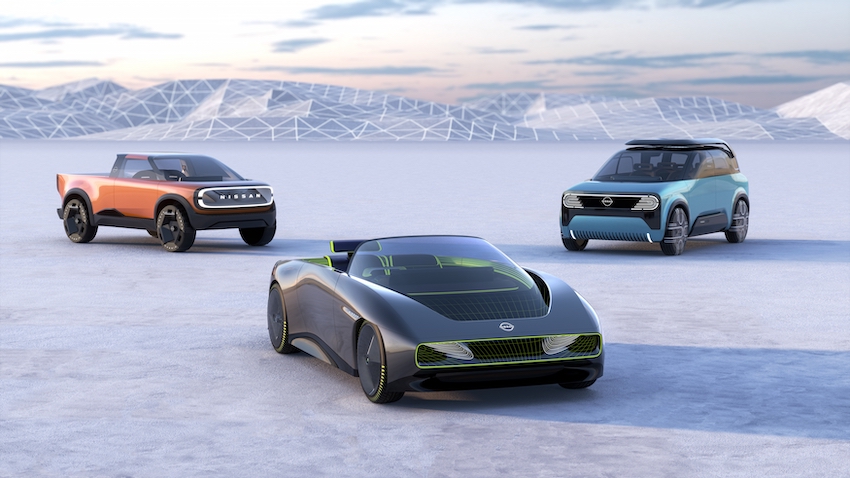Nissan outlines plans for 15 new EVs in ‘Ambition 2030’ strategy
Nissan has set out plans to release 15 new EV models by 2030 as the manufacturer puts electrification at the centre of its long-term strategy.
As part of the ‘Nissan Ambition 2030’ strategy, the Japanese carmaker is to release 23 electrified models, 15 of which will be battery electric vehicles, by 2030, with the company aiming for a 50% electrification mix by the same date.
These targets also support Nissan’s overarching goal of becoming carbon neutral across the life cycle of its products by 2050.
By placing electrification at the core of the company’s long-term strategy, the company aims to accelerate the electrification of its vehicle lineup and rate of technology innovation with investments of c.£13.2 billion (2 trillion yen) over the next five years.
With the release of its new electrified lineup, Nissan intends to increase its electrification sales mix across Europe by more than 75%.
Nissan CEO, Makoto Uchida, stated: “The role of companies to address societal needs is increasingly heightened. With Nissan Ambition 2030, we will drive the new age of electrification, advance technologies to reduce carbon footprint and pursue new business opportunities. We want to transform Nissan to become a sustainable company that is truly needed by customers and society.”
All-solid-state batteries
In order to reach its electrification targets, Nissan will continue to evolve its lithium-ion battery technologies and introduce cobalt-free technology to bring down the cost by 65% by fiscal year 2028.
Nissan aims to launch EV with its proprietary all-solid-state batteries (ASSB) by 2028 and ready a pilot plant in Yokohama as early as 2024. Through this, Nissan says it will be able to expand its EV offerings across segments and offer more dynamic performance.
Nissan expects ASSB to bring the cost of battery packs down to $75 per kWh by 2028 and aims to bring it further down to $65 per kWh to achieve cost parity between EV and gasoline vehicles in the future.
The company is also looking to establish a global battery supply system to meet growing customer vehicle demand and support the growing number of EVs in use. Working with its partners, Nissan intends to increase its global battery production capacity to 52 GWh by fiscal year 2026, and 130 GWh by fiscal year 2030.
